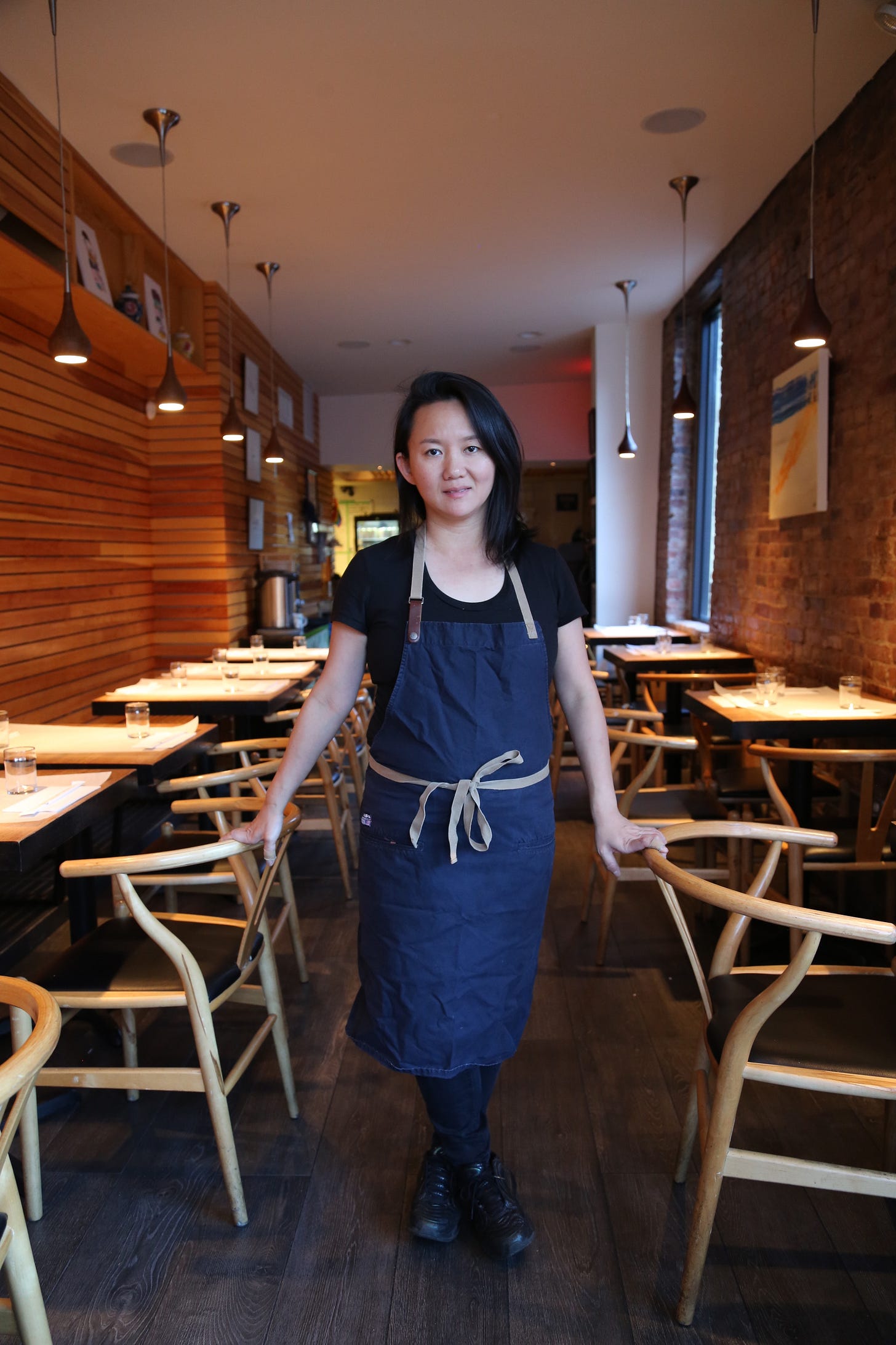NYC’s Little Tong Noodle Shop Owner Is Optimistic About the Future of Chinese Restaurants in the United States
Chef Simone Tong is the owner of Little Tong Noodle Shop, a New York City-based contemporary Chinese restaurant inspired by dishes and flavors from the Yunnan Province. This is her story.

Ten years ago, I watched a TV show called “After Hours,” where Daniel Boulud would go to a restaurant and have interesting conversations with New York City chefs. I saw an episode with Chef Wylie Dufresne, who owned the wd~50 and Alder restaurants in Manhattan at the time. He was like a mad scientist. He would play with food by challenging your memory with nostalgic flavors while also trying new abstract forms of plating.
That artistic expression of preparing food always stuck with me. I came to New York in hopes to work and study under Chef Wiley, and I was able to do that for four years. I would dream and say, I will be so completely happy if I just have one restaurant, I swear. This is the only thing I’m in New York for, and I’ll do anything to open one restaurant.
And then, in March of 2017, we opened our first restaurant in the East Village. I had no idea what I was in for. There’s a big difference between a chef who works for a restaurant group and a chef who owns a small business. The chef who owns a small business has to think about everything — investors, payroll, food costs, sanitation, insurance, taxes, people management, and culture-building. The cooking becomes the least challenging part. I was happy, but I was also very overwhelmed.
We had three Little Tong Noodle Shop locations in the city, with plans to open a new fine dining Chinese restaurant in the West Village. Well, those were our plans as of three weeks ago. Now, the first location is permanently closed, the other two are temporarily closed, and the fourth was getting ready to open when the pandemic hit New York. So timing isn’t great. But you know, we always remember when the timing’s not great. When the timing is great, we just assume it’s life as usual.
Every day when I wake up, I’m trying to decide if I should feel good about giving a few of my employees an opportunity to work or if I’m just risking their lives. So I call them, and based on the first word to come out of their mouth, I can tell what their mental state is like. It’s either, “Hey, chef!” or it’s “Hello.” I mean, you immediately know if something is wrong.
I’m pregnant, so it’s a little frustrating knowing I couldn’t be out there at the restaurant with my team. I feel like me being there would calm people down or me doing a small part would help.
I had to lay off 30 people — our entire team of cooks, servers, and porters. I can’t predict what will happen to my business in six months, but what I know for sure is that my people won’t have their jobs. And that means a lot of them won’t be able to pay rent. We started a GoFundMe to help them cover costs of living like rent, food, and medical bills. My biggest concern is, “Are we going to still have the same restaurant when all of this is over so my people can come back to work? Will there be a business?”
I don’t know how many people actually view this as a “Chinese virus,” but I’m sure there must be a substantial portion of the population who has this idea in the front or back of their mind. It’s a mental shortcut people tend to take because that’s how our brains function in times of fear. I don’t know what will happen once all of this is over, but I remain optimistic about the future of Chinese restaurants in the United States.
At the end of the day, I think the restaurant industry is full of stubborn, passionate people. There’s a lot of joy and pain every single day, but I keep going because part of me doesn’t know what else I would do if I wasn’t cooking, coming up with menus, and solving problems.
We’ll learn a lot from this. Right now, though, we’re all just trying to figure out how to maintain stress and inspiration at the same time.
— As told to Polina Marinova
The Profile’s ‘Faces of American Business’ series continues below. Read more:
— Mike Webster, owner of Premier Indoor Golf
— Frank Bonanno, co-owner of Bonanno Concepts
— Jessica Rae, owner of Rae Studios
— Michael Sadler, co-owner of Republic of Booza

